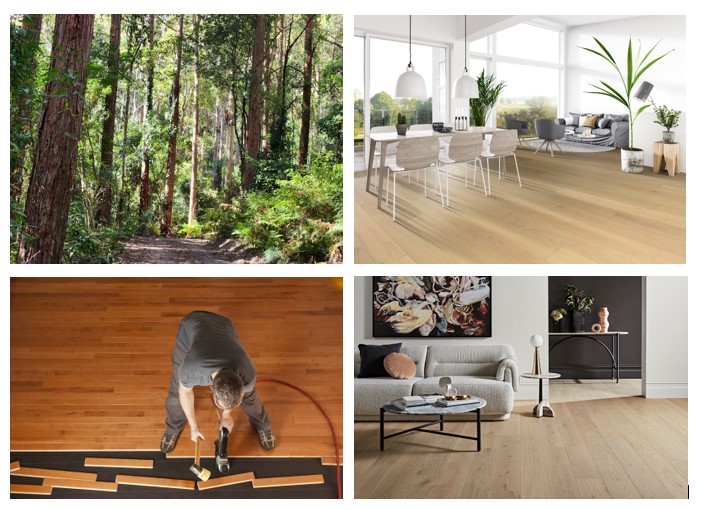Abbey Timber is a third-generation family owned business trading in Moorebank NSW, that specialises in the supply of building materials to the trade. We feel it’s important to educate our fellow industry colleagues about the situation we are facing in NSW as councils and politicians attempt to stop native forest harvesting.
WA made the decision in 2021 to end native forest harvesting and as a result there are no commercial mills left in the country’s west. Meaning you cannot buy WA Karri, Jarrah and other WA species anymore and the small amount of material that is still available has increased up to 50% in cost.
Victoria has also closed all native forest harvesting, effective end of 2023. This means you will no longer be able to buy Victorian Ash and all other Victorian species of timbers when the current stock dries up. Again, the small amount that may be available will be unaffordable to most.
If NSW follows suit, it will destroy an industry already on the verge of collapse. You will no longer be able to buy commercial quantities of any NSW hardwood species and the small amount of private and plantation logs available will be sold at an inflated premium.
The native timber sector is a responsible and sustainable industry contributing more than $2.9billion to the NSW economy each year whilst employing more than 55,000 workers. Losing this industry in NSW will have a devastating outcome for rural communities that will also be felt in our big cities. The Victorian Government paid out more than $895million dollars of taxpayer’s money to companies and employees directly impacted by their closure, that amount is said to be much higher in NSW if the government goes ahead with its plans.
Timber is the ultimate renewable resource
- Sustainability – Is the ability to maintain a process over time without exhausting a resource. Australian native forests are managed by using some of the strictest guidelines in the world to ensure we have our precious resource available for future generations. For every tree that is harvested a new one is planted.
- Harvesting – Commercial harvesting of our native forests includes natural and reseeding of new growth, all part of a management system. Our forests are harvested using selective log practices, meaning that with months and years of planning only 10 trees for every 10,000 are selected for harvest. 88% for native forests in NSW are protected leaving 12% set aside for other uses including harvesting, of that only .03% is harvested annually.
- Natural destruction – More than 5 million hectares were impacted in the fires of 2019-2020 across NSW. Managing our forests with sustainable practices helps to protect our forests more than you know. Without the practices our Forestry corporations are carrying out this figure will grow.
- Carbon and climate change – Timber is the most renewable building product we have; it is also the only building product we have that stores carbon for the life of the product harvested. The carbon footprint left if we are forced to use other materials like concrete and steel will be devastating.
Misinformation is having a devastating impact on our industry. Armed with the correct information on how our forests are managed and regulated, an understanding of the true environmental value harvesting has on our environment, respect for the livelihoods for not only our rural communities but for those living in cities, cost of living concerns and so many other points it is hard to understand that we are facing such uncertainty in our industry.
I encourage everyone to visit the websites listed below where industry experts provide an informed analysis of the situation we are facing. We need your help to save our industry.
- com.au
- com.au
- asn.au
- asn.au
- asn.au
- com
- org.au
Let’s work together to keep the industry open. Add your voices to the campaign by contacting the NSW Premier Chris Minns and key members of his Cabinet. They need to hear from us now about what is at stake. You can join the campaign at www.timberfacts.com.au , where you’ll find campaign resources to add your voice. The timber industry has important new roles to play in the 21st century, but it remains at the heart of our communities.

